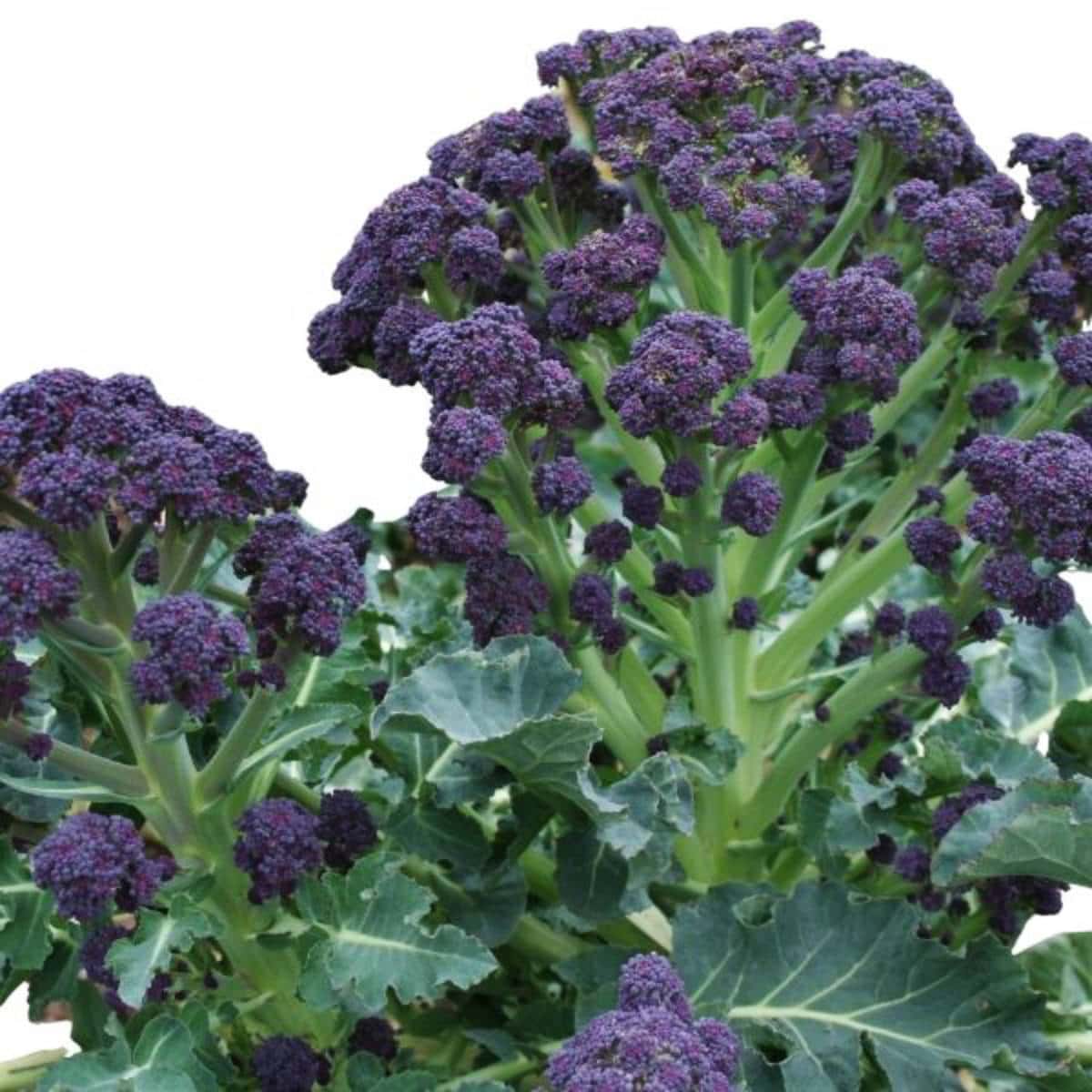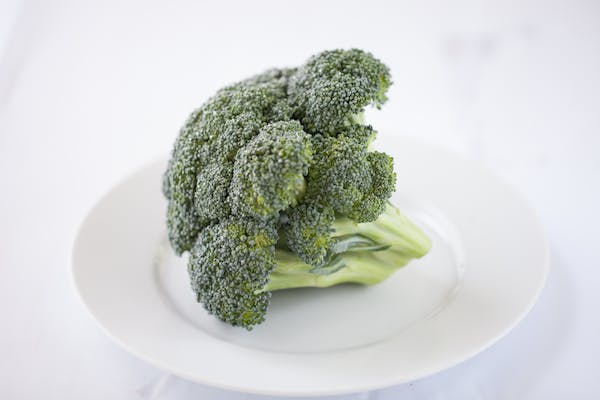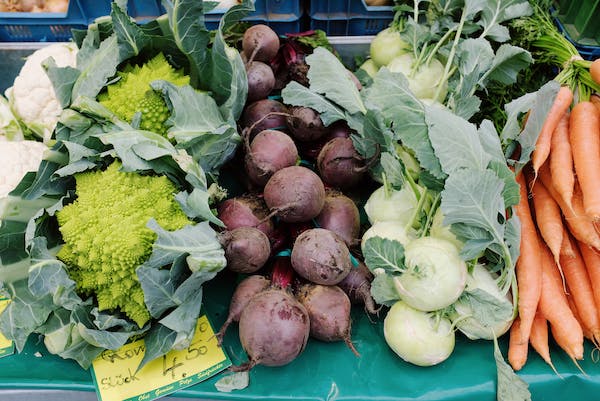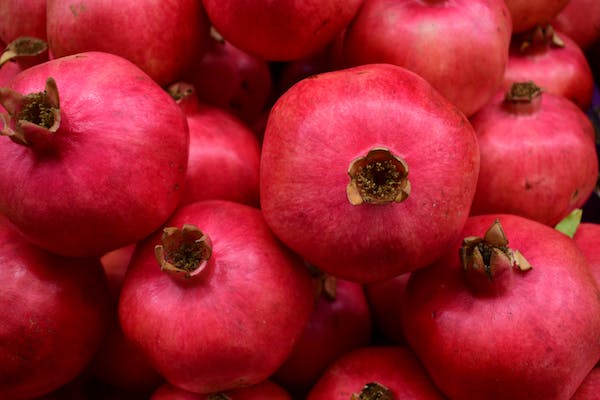Overview
-
Broccoli is a nutrient-rich vegetable that offers multiple health benefits.
-
Packed with vitamins, minerals, and fiber, it supports immune function, digestion, and heart health.
-
Its antioxidants and anti-inflammatory properties help reduce the risk of chronic diseases.
-
Broccoli assists in weight management and provides dietary fiber due to its low calorie content and culinary variety.
-
Broccoli is a delightful and nutritious supplement to your diet when included in your meals.
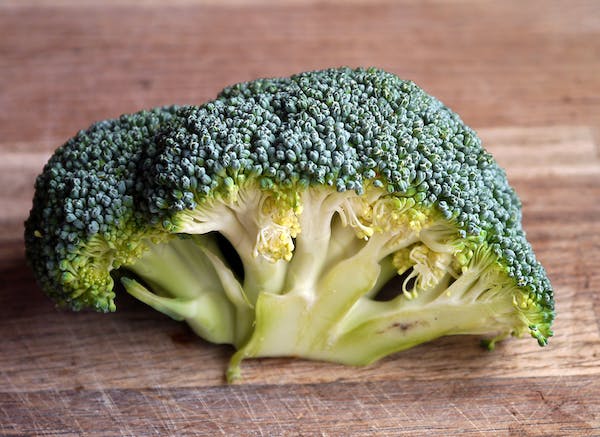
Broccoli, like other similar vegetables such like kale, scientifically known as Brassica oleracea, is a versatile and nutrient-rich vegetable that has gained widespread recognition for its numerous health benefits.
With its dynamic green florets and firm stalk, broccoli is among the cruciferous vegetable family, which includes other nutrient powerhouses like kale, cabbage, and cauliflower.
fully compressed with essential vitamins, minerals, and antioxidants, broccoli is a superfood that can significantly contribute to your overall well-being.
8 Health benefits of Broccoli
We explore the top health and nutritional benefits of broccoli.
1. Cancer Prevention
Glucosinolates, sulfur-containing chemicals that have been intensively researched for their possible anticancer properties, are abundant in broccoli. This is one of broccoli’s many health benefits.
These substances are known to activate enzymes that speed up the process of removing carcinogens from the body and restrict the spread of cancer cells.
Broccoli consumption may lower your risk of having a variety of diseases, which may include lung, colon, breast, prostate, and bladder cancer.
2. Bone Health
With its significant, calcium and collagen in broccoli contributes to maintaining strong and healthy bones.
Vitamin K is important for bone metabolism and strength, while calcium is required for bone mineralization and strength.
Broccoli consumption on a regular basis might help you avoid fractures and osteoporosis.
Study as revealed that people who are deficient in calcium levels are prone to having problems with bone formation.
Hence obtaining calcium from this vegetable may contribute to the bones healthy.
3. Reduces Bad Cholesterol
Broccoli is a good and healthy match for reducing bad cholesterol levels through its high fiber content, including soluble fiber that binds to cholesterol and inhibits its absorption.
Because of the containment of plant sterols that compete with cholesterol for absorption, antioxidants that prevent LDL cholesterol oxidation and plaque formation, and anti-inflammatory compounds like sulforaphane that address inflammation associated with high cholesterol.
Broccoli’s nutrient composition, low in saturated fat and rich in heart-healthy nutrients, contributes to maintaining healthy cholesterol levels.
Incorporating broccoli into a balanced diet and adopting other healthy lifestyle habits can enhance its cholesterol-lowering effects.
4. Immune System Support
Vitamin C, are abundantly found in broccoli, is a potent immune-booster nutrient. It stimulates the production of white blood cells, which are vital for fighting off infections and diseases.
When you add broccoli to your diet you are on your way to help strengthen your immune system, keeping you healthy and less susceptible to illnesses.
5. Digestive Health
Broccoli is another excellent source of fiber, which plays a healthy role in maintaining a healthy digestive system.
Fiber adds bulk to the stool, promoting regular bowel movements and preventing constipation.
Furthermore, it functions as a prebiotic, feeding healthy gut flora and enhancing gut health while lowering the risk of digestive diseases.
Moreover, A 76 g cup of broccoli contains 5.4% to 7.1% of the recommended daily fiber intake for an adult.
6. Skin Health
A significant part in fostering healthy skin, the high vitamin C concentration aids in the production of collagen, which is necessary for preserving skin suppleness and avoiding wrinkles.
Antioxidants help in combating free radicals, that can harm skin cells and speed up aging.
Also with this, the presence of sulforaphane in broccoli has been found to have protective effects against UV-induced skin damage.
When you add broccoli in your diet, it will actually aid you to achieve a radiant, healthy, and beautiful complexion and promote overall skin health.
7. Weight Management
Broccoli is a superfood low-calorie vegetable that is high in fiber and water content. The fiber and water content combination makes it a healthy and excellent choice for weight management or weight loss goals.
The fiber and water content help you feel full and satisfied, reducing overall calorie intake.
The presence of phytochemicals in broccoli may boost metabolism and aid in fat burning.
8. Eye Health
Broccoli contains carotenoids like lutein and zeaxanthin these are antioxidant that are good for maintaining eye health.
They help in protecting the eyes from oxidative damage brought on by exposure to dangerous ultraviolet (UV) rays and age-related macular degeneration, which is a major factor in vision loss in older people because of the low vitamin A consumption.
Broccoli also helps people improve their vision.
9. Heart Health
Heart health is another health benefit of broccoli, due to the unique combination of both fiber, antioxidants, and anti-inflammatory compounds in broccoli makes it a heart-healthy veggies.
Fiber content helps lower cholesterol levels, while the antioxidants reduce oxidative stress and inflammation in the cardiovascular system.
Sulforaphane is also present in broccoli a compound that has been shown to improve blood vessel function and reduce the risk of heart disease.
Types of Broccoli
Don’t get it twisted into believing that there is only one type of broccoli because you have only seen one in the marketplace or grocery store. There are varieties of broccoli, depending on where you are in the world.
Broccoli Calabrese
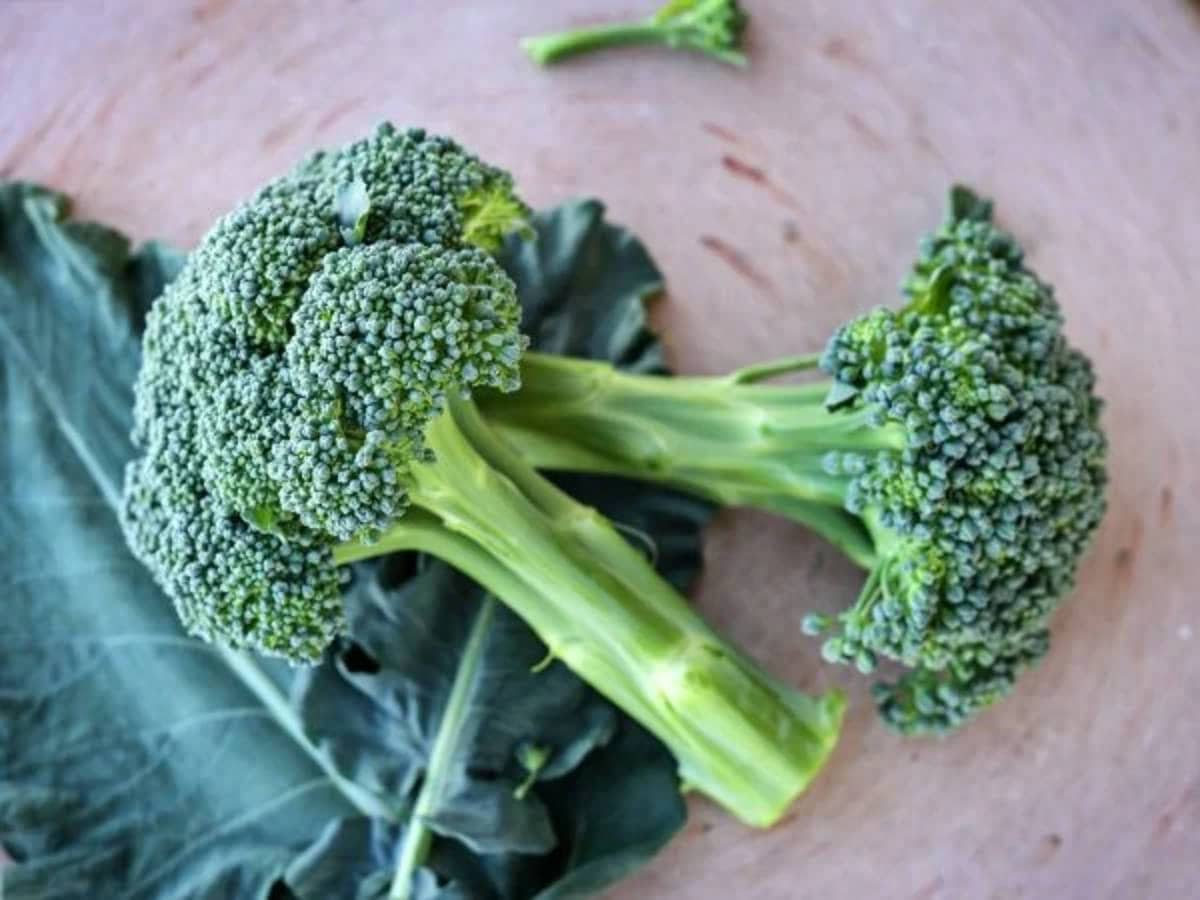
Calabrese broccoli, commonly referred to as “standard” or “common” broccoli, is the most extensively distributed kind. It has a broad, compact crown with closely spaced dark green florets.
This kind can be found often in grocery shops and is used in a variety of recipes, including stir-fries and steamed side dishes.
Broccolini
The vegetable broccolini, sometimes known as “baby broccoli,” is a hybrid. It has longer, thin stems with sensitive, tiny florets at the top.
Compared to typical broccoli, broccolini has a softer taste with a hint of sweetness. It functions well as a side dish on its own, in roasted vegetable medleys, and in stir-fries.
Broccoli in Purple
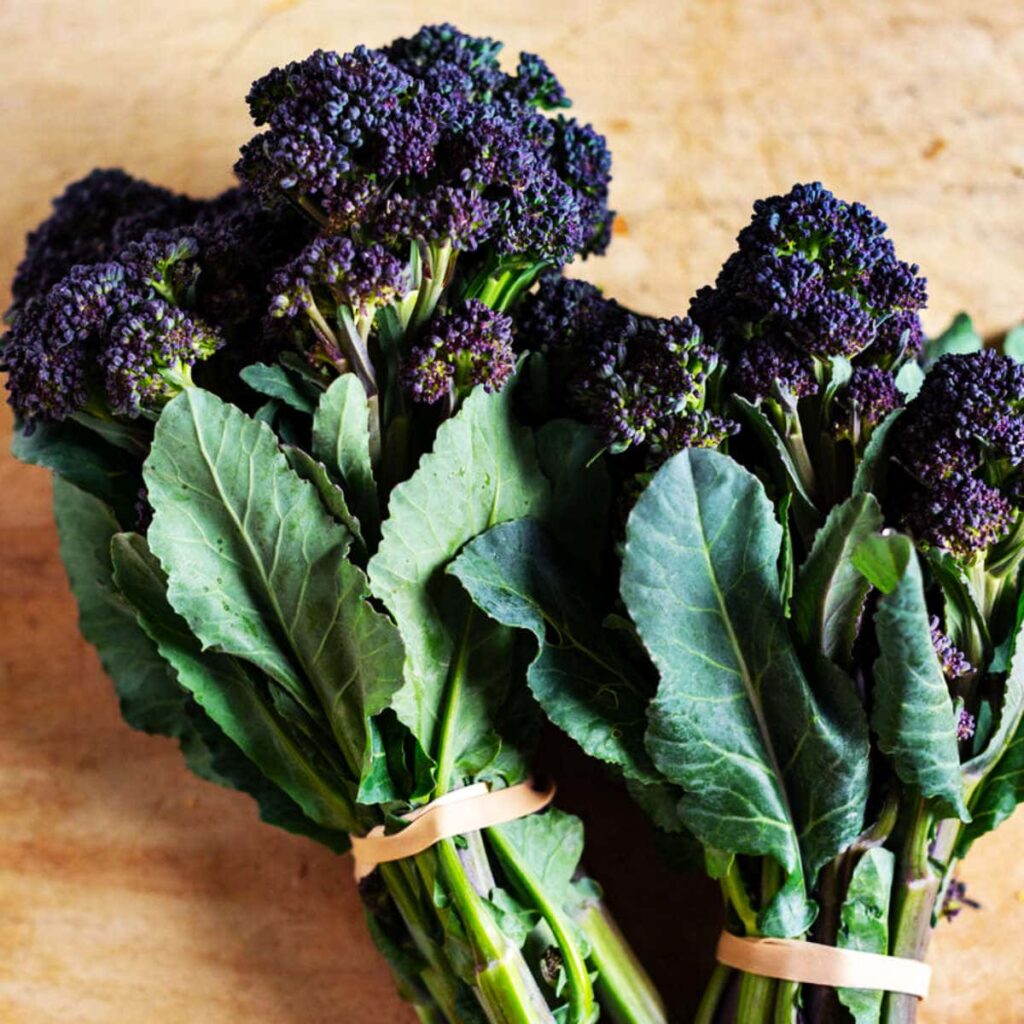
Purple broccoli, as the name indicates, contains florets that are vivid purple rather than green. This type is eye-catching and provides a splash of color to any dish.
Purple broccoli has a comparable flavor and texture to ordinary broccoli, however it has a milder flavor. It, like its green sibling, may be prepared in a variety of ways.
Broccoli Sprouting
